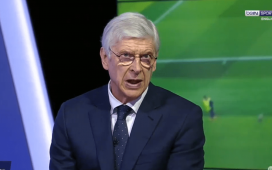The former Tottenham Hotspur and Liverpool footballer Paul Stewart has spoken of losing his identity as a footballer when he went public about the sexual abuse he suffered as a child.
In 2016, Stewart, now 54, was one of the first players to come forward with details of historical sexual abuse at the hands of a youth team coach. His testimony, and that of fellow professionals, led the Football Association to commission an inquiry into sex abuse within the game and he has spent the last two days participating in discussions at the wider Independent Inquiry into Child Sex Abuse (IICSA).
Stewart said that going public proved “cathartic”, but he had not been braced for how it would change the way he was perceived.
“I would say to anyone that’s considering coming forward … I think you’ve got to consider carefully before you actually come forward, consider what the impact on yourself might be because that’s one thing I didn’t do,” he said, in an interview on the sidelines of the IICSA.
“I had a half-decent football career with the clubs that I played for and if I was recognised, I was recognised for scoring a goal in a [FA] cup final, playing for Tottenham and Liverpool. Whereas now I think I am recognised for somebody who came forward with a story of the abuse I suffered as a youngster. I lost my identity as a footballer and my identity is now is that of someone that suffered historical abuse.”
Stewart was assaulted on a daily basis for four years from the age of 11 by Frank Roper, a coach with the junior side Nova. Roper died in 2005.
Stewart, who co-founded the Save Association (Safeguarding and Victim Engagement), maintained that speaking out was “more than worthwhile, 10 times over” because of the support he has received and others he has helped. But he was eager to stress that it was not a cure-all for everything he had been through.
“[After] 42 years of silence, to think I’m going to switch a light bulb on and off and everything will be fine would be too much to expect,” he said. “I think my family understand me a bit better and I think I manage the problems that are due to the abuse now a lot better than I did in the past when I would have buried it in drink and drugs … I still have dark days but it’s how you manage them. I’m getting better at managing the issues,” said Stewart.
He believes the FA has come a long way since 2016 in terms of its willingness to engage on the issue of child sexual abuse. However, he added: “We’re still creating scenarios where we’ve got clubs with upwards of 1,000 kids in some cases, which are the size of schools … therefore the level of safeguarding needs to be such that in line with what’s happening at schools and in other regulated authorities.”
At the IICSA he was a member of a panel, including representatives of government agencies and charities, discussing the issue of whether there should be a mandatory duty to report suspicions of child sexual abuse.
Stewart said: “I am in favour of mandatory reporting. My concern would be that when it’s introduced there isn’t a framework in place to sustain the undoubtable [increased] workload.”
Other panel members also expressed concern about how authorities would cope with the inevitable increase in referrals – seen in other countries after introduction of legislation – including Det Supt Michael Britton, representing the National Police Chiefs’ Council, who questioned “how we would manage that … given current resourcing”.
However, others said that money should not be the prime consideration. Prof Ben Mathews, from Queensland University of Technology, described as the leading academic on mandatory reporting, expressed bemusement that a country with a £40bn defence budget would be unable to find the cash to fund the ensuing increase in referrals.
Mathews said empirical evidence and ethical considerations strongly supported introduction of mandatory reporting for sexual abuse, which would “bring cases of abuse to light which otherwise would remain hidden”.
The IICSA was established in 2015, and is expected to conclude next year.














